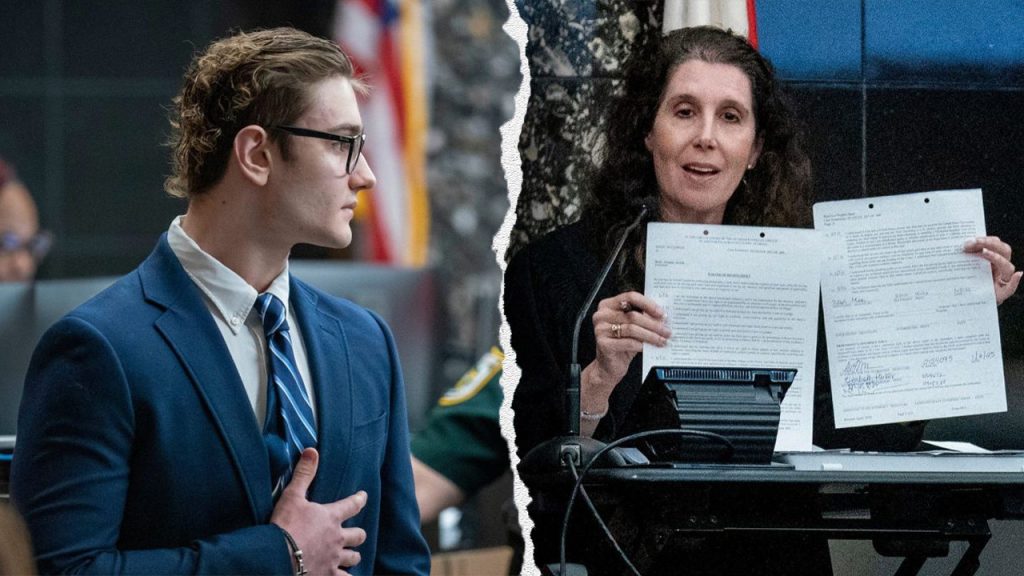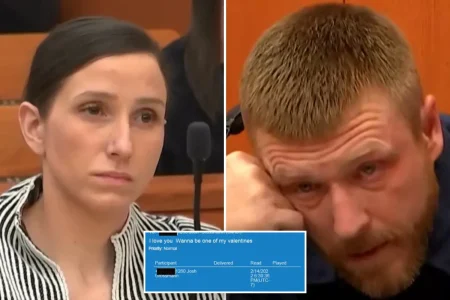The tragic case of Noah Galle, a young TikToker from Florida, underscores the devastating consequences of reckless driving. In 2022, at the age of 17, Galle’s excessive speeding resulted in a catastrophic car crash that claimed the lives of six farmworkers. His subsequent legal journey culminated in a plea deal, raising questions about justice, accountability, and the complexities of sentencing in such emotionally charged circumstances.
Galle’s actions, captured in videos showcasing his high-speed driving in a luxury BMW sports car, spiraled into tragedy when he rear-ended an SUV carrying six individuals returning from their shift at Pero Family Farms. Traveling at an estimated 151 mph in a 55 mph zone, the impact caused the SUV to lose control, roll over multiple times, and ultimately result in the deaths of all six occupants. The victims, ranging in age from 29 to 77, included Mirlane Julceus, the driver, and her passengers: Michel Louis Saint, Marie Michelle Louis, Remzie Michel, Filaine Dieu, and Vanice Percina. The crash, one of the deadliest in Palm Beach County history, brought immense grief to the families and the community.
Three years after the incident, Galle, now 20, faced the legal repercussions of his actions. He pleaded guilty to six counts of vehicular homicide, avoiding a trial that could have resulted in a significantly longer prison sentence. While the potential sentence ranged from 55 to 90 years, consecutive sentencing for each count is rare, particularly for individuals without a prior criminal record. Galle’s plea deal resulted in a 12-and-a-half-year prison sentence, a decision that sparked debate and raised questions about the adequacy of the punishment.
The plea bargain was met with mixed reactions. The prosecution, led by Chief Assistant State Attorney Al Johnson, defended the agreement, citing Galle’s young age at the time of the crime, his lack of prior criminal history, and the expressed wishes of some of the victims’ families. While some family members sought a harsher sentence, others reportedly did not want Galle to face any jail time, highlighting the complex emotional landscape surrounding the case. The prosecution emphasized that the plea deal offered a “significant punishment” and provided a degree of closure for the families.
Galle’s defense attorney, Liz Parker, a former traffic homicide prosecutor, read aloud a statement of remorse prepared by Galle. While the statement aimed to convey contrition, the brevity of the sentence in comparison to the maximum possible penalty raised concerns about whether it truly reflected the gravity of the crime and the irreversible loss suffered by the victims’ families. The plea agreement included stipulations beyond the prison sentence, requiring Galle to create and share a social media video promoting safe driving, perform 800 hours of community service, complete a driving course, and participate in a victim impact panel. These conditions aimed to transform Galle’s experience into a cautionary tale for others and to foster a sense of responsibility and empathy in the young offender.
The Galle case serves as a stark reminder of the dangers of reckless driving, particularly among young drivers. The accessibility of high-performance vehicles combined with the influence of social media, which can encourage risky behavior, creates a potentially lethal combination. The tragedy highlights the need for continued education and awareness campaigns targeting young drivers about the devastating consequences of speeding and irresponsible driving. The case also underscores the complexities of the legal system, where factors like age, prior criminal history, and the views of the victims’ families play a significant role in determining the outcome of such cases. While the plea deal provided a resolution, it left lingering questions about whether justice was truly served and what constitutes an appropriate punishment for actions that resulted in such profound and irreparable loss.










